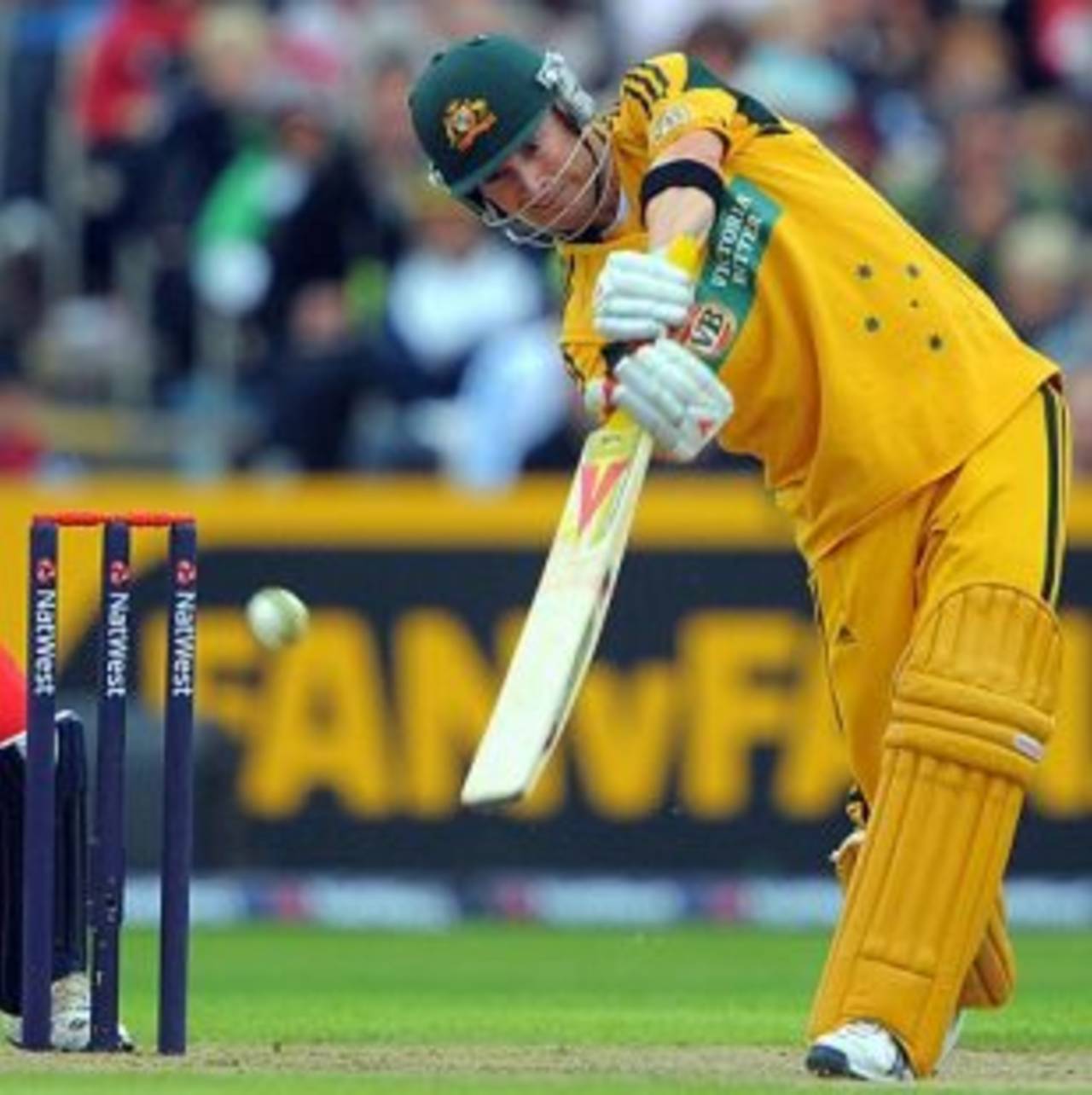Calls for Michael Clarke's elevation to the limited overs captaincy have increased in frequency and volume ever since Ricky Ponting trudged from The Oval minus a certain terracotta urn last month. Splitting the leadership role, the theory goes, would provide Clarke with experience before his anticipated Test coronation and ease the workload on Ponting who, approaching 35, is hoping his twilight years will operate on daylight savings time.
On the surface, the succession plan appears to have merit. Ponting, after all, won't be around forever and Australia will at some stage require a steady hand to guide them through a transitional period that has thus far proven more painful than most had expected.
But, on closer inspection, the case for the immediate promotion of Clarke is more nebulous than visionary. Over the past two years, Clarke has struggled to score at anywhere near the industry-standard strike-rate for limited overs batsmen, placing tremendous pressure on those around him to lift the team's scoring. Clarke's strike-rates in the 50 and 20-over formats since the start of 2008 stand at a modest 67.52 and 80.91 - all at a time when the Twenty20 game has encouraged batsmen to devise new, innovative ways to accelerate scoring. Australia's ODI and Twenty20 win-loss records stand at 23-15 and 4-6 respectively over the corresponding period.
Friday's innings at The Oval proved a continuation of the theme for Australia's stand-in captain. During a 72-ball stint at the crease, Clarke glanced, nudged and glided his way to 45 through the middle overs. Certainly, there was a case for consolidation after two early run-outs, but Clarke's orthodoxy and general reluctance to play across the line allowed the likes of Paul Collingwood and Adil Rashid to tie him down, leaving it to Callum Ferguson and Michael Hussey to up the tempo later in the innings.
"I thought we were maybe 15, 20 runs short but that was mainly down to my batting, I reckon," Clarke conceded after play. "I took too many balls to score the runs I did. Hopefully that's an area I can improve on come Sunday.
"I felt like the last two innings I've had have been very scratchy, the T20 and here tonight. Unfortunately I got out in the second ball of the powerplay, where normally you cash in or catch up with your strike-rate. I feel like my one-day form has been pretty consistent. The last one-dayers we played was in Dubai and I thought I batted very well there. It's just a different form of the game and it's probably taken me a couple of games to get back into it. I've got some work to do in the nets tomorrow leading up to Sunday's match but hopefully I can score a little bit freer come Sunday."
It may well be that the very transformation that turned Clarke into the talisman of Australia's Test batting line-up has caused his deceleration in the limited overs formats. The move to stow away the impetuous hooks and risky sweeps has undoubtedly led to a general swelling of his batting averages across the spectrum, however accumulation alone is no longer sufficient in the modern 50 and 20-over games. The Clarke who scored at clips of 82.61 and 137.50 in ODI and Twenty20 cricket prior to 2008 has been conspicuously absent of late.
The Australians, deposed from the No. 1 ODI ranking by South Africa earlier this year, need Clarke to rediscover his fifth gear of old in the limited overs formats without compromising his Test consistency. And while he embarks on this transformative journey, he could presumably do without the added burden of the 50 and 20-over captaincy on a full-time basis. There are few more uncomfortable sights in cricket than that of a captain battling with his own game, and Australia's selectors would be taking an unnecessary risk by passing on the torch at a time when Clarke is searching and Ponting is willing.
That is not to say Clarke should be replaced as Australia's captain-elect. The talk within the camp indicates that the 28-year-old is evolving as a leader - an opinion not always universally held by the players - and serving Ponting well in his role as deputy. But more than a step-up in responsibility, Clarke needs to address the tempo of his limited overs batting to alleviate pressure on the middle-order in the short-term. Once the bat feels good in his hands, so too will the baton.
Alex Brown is deputy editor of Cricinfo
